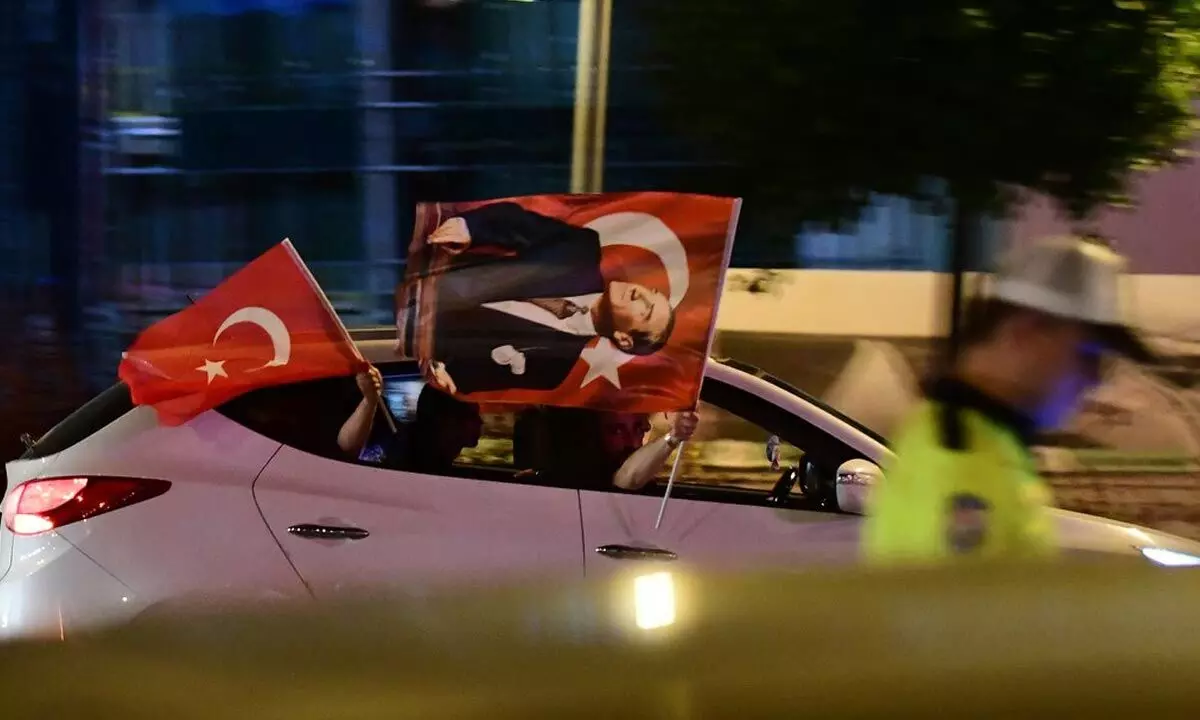Turkiye votes for authoritarianism & ad hocism

Turkiye votes for authoritarianism & ad hocism
Now that Recep Tayyip Erdogan is back firmly in the saddle winning the recently held elections, could we say that the “Century of Turkiye” has arrived? This should be the fundamental question asked today, going by
Now that Recep Tayyip Erdogan is back firmly in the saddle winning the recently held elections, could we say that the “Century of Turkiye” has arrived? This should be the fundamental question asked today, going by
the claims of Erdogan all these years. Erdogan has been dreaming of two things: The Century of Turkiye, and also his dominance over the same.
Erdogan had always nurtured the idea of the return of the Ottoman Empire in all its grandeur and vastness under his rule. He looked at himself as an undisputed ruler of the Moslem world of modern days. However, due to inflation and economic crisis and the problems that Lira faced, Erdogan found his position shaky before the elections. In addition, his plans of reelection ran into trouble with the massive earthquake of February 6 that shook the nation along with Syria. The slow or almost absent response from the authorities disillusioned the nation further. In a way, the Turks went to the polls with a huge load of problems determined to defeat Erdogan dictatorial policies. However, the main contender and Erdogan’s key rival, former Istanbul Mayor Ekrem Imamoglu, was banned from politics in December last year and sentenced to three years in prison for allegedly insulting the judges of the Supreme Council.
Of course, Erdogan had the advantage of the friendly media controlled by his party. Even these things would not have ensured victory for Erdogan. Despite his authoritarianism, economic crisis and a profound appeal of the Opposition for a radical institutional change, Erdogan won comfortably with his campaign for continuity. This was effectively clubbed to convey to the electorate the instability that could set in if the opposition coalition wins and the resultant chaos with the identity issues. Erdogan also kept emphasising on family and religious values.
It is remarkable that people trusted Erdogan despite the fact that the Lira lost 83 per cent of its value by January 2022 itself. Still, he refused to allow the Central bank to raise the interest rates. This has been done with an eye on the middle-class Turks who are his core support base. Despite 88.5 per cent inflation, the support base stood by him solidly. Turks trusted in the strong leadership of Erdogan and hence, he became a safer choice for the voters.
Erdogan has a real challenge now on his hands. He has to steer the economy well and also protect his country’s interests from the European crisis due to the Ukraine conflict. His unilateral tendencies and his interference nature in others’ domestic policies would only see a further increase, perhaps. A major criticism against him is that his policies led to erosion of the role of institutions. It has been a hyper-centralized presidential system since 2017 in the country. Even ordinary people lament that too much is dictated by the
President’s office and no institution functions effectively on the lines it is supposed to as per the law. Ad hocism has been the hallmark of his rule and this is expected to worsen further with no one even attempting to suggest to him the good and bad of something.
Absence of strategic, long-term decision making on foreign policy could land Turkey in more trouble than earlier.














